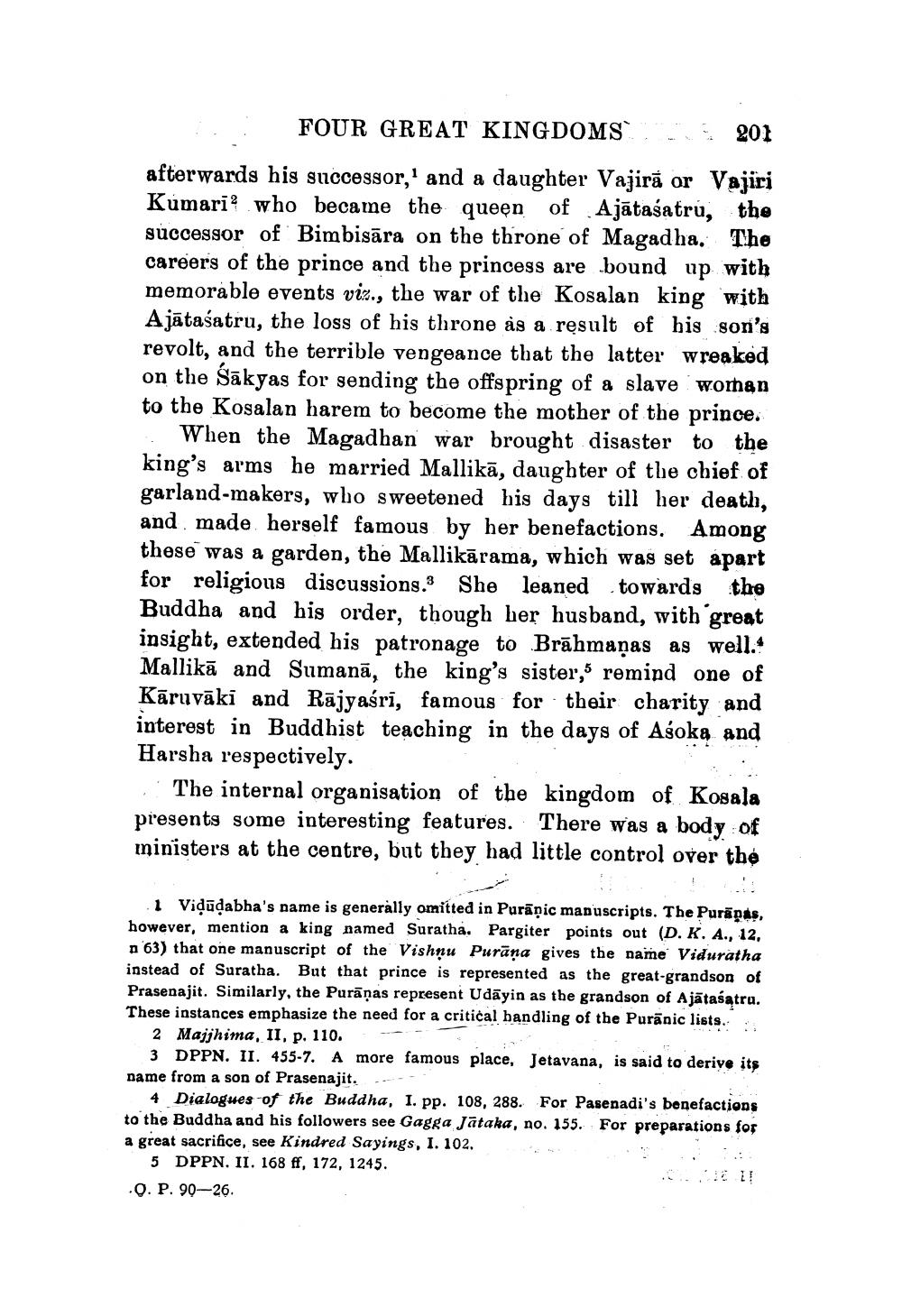________________
FOUR GREAT KINGDOMS
201
afterwards his successor,' and a daughter Vajiră or Vajiri Kumari? who became the queen of Ajātasatru, the successor of Bimbisāra on the throne of Magadha. The careers of the prince and the princess are bound up with memorable events viz., the war of the Kosalan king with Ajātaśatru, the loss of his throne as a result of his son's revolt, and the terrible vengeance that the latter wreaked on the Sākyas for sending the offspring of a slave woman to the Kosalan harem to become the mother of the prince.
When the Magadhan war brought di king's arms he married Mallikā, daughter of the chief of garland-makers, who sweetened his days till her death, and made herself famous by her benefactions. Among these was a garden, the Mallikārama, which was set apart for religious discussions. She leaned towards the Buddha and his order, though her husband, with great insight, extended his patronage to Brāhmaṇas as well. Mallikā and Sumanā, the king's sister,5 remind one of Kāruvāki and Rājyaśrī, famous for their charity and interest in Buddhist teaching in the days of Asoka and Harsha respectively.
The internal organisation of the kingdom of Kosala presents some interesting features. There was a body of ministers at the centre, but they had little control over the
1 Viļūdabha's name is generally omitted in Parāṇic manuscripts. The Purāpas, however, mention a king named Suratha. Pargiter points out (D. K. A., 12, n 63) that one manuscript of the Vishnu Purana gives the name Viduratha instead of Suratha. But that prince is represented as the great-grandson of Prasenajit. Similarly, the Purāņas represent Udāyin as the grandson of Ajātaśątra. These instances emphasize the need for a critical bandling of the Purānic lists.
2 Majjhima, II, p. 110.
3 DPPN. II. 455-7. A more famous place, Jetavana, is said to derive its name from a son of Prasenajit.
4 Dialogues of the Buddha, I. pp. 108, 288. For Pasenadi's benefactions to the Buddha and his followers see Gagga Jātaka, no. 155. For preparations for a great sacrifice, see Kindred Sayings, 1. 102.
5 DPPN. II. 168 ff, 172, 1245. Q. P. 90-26.




